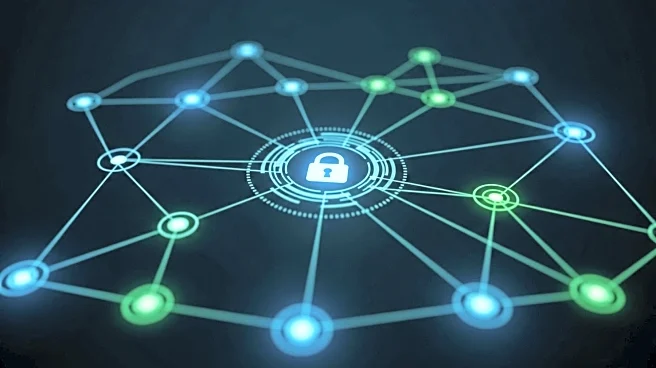What is the story about?
What's Happening?
A joint advisory from the U.S., U.K., and other allies has detailed Chinese state-sponsored cyber intrusions targeting telecom networks, known as 'Salt Typhoon'. These intrusions have been ongoing since 2021, focusing on exploiting known vulnerabilities in network equipment rather than using zero-day exploits. The campaign has targeted telecoms and backbone networks, modifying routing and traffic mirroring to harvest sensitive data. The FBI has reported that the intrusions have reached lawful intercept systems, which process court-authorized surveillance data. The U.S. has responded by sanctioning Chinese firms and individuals linked to these activities.
Why It's Important?
The Salt Typhoon campaign represents a significant threat to national security, as it targets critical infrastructure and sensitive data. The ability to access lawful intercept systems raises concerns about privacy and civil liberties. The campaign's focus on telecom networks means that a single breach can provide extensive access to communications data, posing risks to both individuals and organizations. The U.S. sanctions aim to disrupt the contractor ecosystem supporting these cyber operations, highlighting the need for international cooperation in addressing cyber threats.
What's Next?
The U.S. and its allies are expected to continue monitoring and responding to Chinese cyber activities. The focus will likely remain on strengthening defenses and closing gaps in network security. Further sanctions and legal actions may be taken against entities supporting these intrusions. The advisory stresses the importance of treating network devices as endpoints and improving logging and monitoring to detect and prevent future attacks.
Beyond the Headlines
The campaign underscores the evolving nature of cyber threats, with attackers increasingly targeting network infrastructure rather than individual devices. This shift requires a reevaluation of cybersecurity strategies and the development of new tools and techniques to protect critical systems. The geopolitical implications are significant, as cyber operations become a central component of international relations and security policies.

















